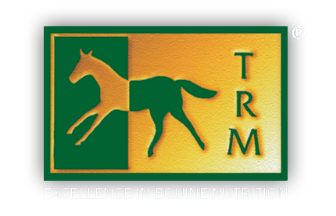Vitamin B – Why it is needed by the performance horse
What is Vitamin B?
This group of vitamins is diverse containing a wide range of substances that serve as catalysts in the metabolism of protein, fat and carbohydrate and in the formation of tissues from nutrients. Because of their wide-ranging roles within the horse’s body these vitamins are necessary for reproduction, growth, physical performance, maintenance of health and food utilisation – without them, the body ceases to function!
Requirements
The requirements for the B complex vitamins are affected by many factors such as;
type and quality of diet;
presence of dietary contaminants such as mycotoxins;
quantity of microbial synthesis in the gut;
extent of absorption in different segments of the gut (bioavailability);
age;
genotype;
extent of feed processing;
exercise;
intestinal infection/malfunction;
parasitism;
reproductive status.
It should be clear that it is difficult to precisely define requirements since there are so many confounding factors that can have an impact on them. Furthermore, there
are different levels of requirement. For example, the minimum requirement is that daily quantity of a vitamin that will prevent deficiency symptoms occurring. It is
noteworthy that the B complex vitamins are water-soluble and are not stored for any length of time within the animal’s body hence necessitating a regular, daily supply.
In contrast to the minimum requirement the animal has an optimum requirement that requires a quantity of vitamin that will maximise the functionality of the body whether
it is for say, exercise or lactation.
Suboptimal performance is often the result of the undersupply of vitamins and should not be confused with a clinical deficiency. Good feeding practice for horses
demands that the supply of B complex vitamins be optimised so that these animals can realise their genetic potential. A more recent development has been the
realisation that the provision of extra vitamins can contribute to the long term well being of both animals and people. This is in situations where the vitamins are having an activity beyond their normal physiological function such as in terms of reducing health risks. A case in point would be Biotin where although sufficient may be fed to support normal body function in the horse, the provision of large amounts (>20mg/day), well beyond “normal” requirements, have resulted in significant
improvements in hoof horn quality.
Sources of B complex vitamins
There are two sources of B vitamins to the horse, from the diet and from microbial synthesis within the gut; the latter is confined to the caecum and colon. Production
of B vitamins within the large intestine is dependent on the type of diet fed thus, less will be formed when a high cereal diet is fed because small intestinal digestion will be maximised whilst large intestinal fermentation will be minimised. In contrast, a very active fermentation will occur when an all-forage diet is fed and as a result, more B vitamins will be produced. Unfortunately, fermentation occurs after the major site of absorption which is in the small intestine so it is questionable as to what proportion of the B vitamins produced in the large intestine will be subsequently absorbed. Dietary B vitamins are well absorbed from the small intestine (Vitamin B12 is exceptional in that it requires a carrier, known as intrinsic factor, to assist its absorption through the intestinal wall) as they are water soluble
so, provided there is a good supply in the diet, the animal will be well provided for. In this context, a dietary supply of these vitamins is the only reliable means of
ensuring an optimal supply to the horse.
Conclusion
The B complex vitamins are critically important to the well being of the horse. They can be produced to some extent within the animal’s body, but their production
depends on there being a satisfactory fermentation within the large intestine. Performance horses fed limited amounts of forage should be supplemented.
